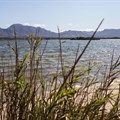The City of Cape Town has released water quality test results for Zeekoevlei, Zandvlei, Rietvlei and Milnerton lagoon for May to October 2021. All four waterbodies have been closed to the public for months due to dangerously high levels of E. coli (a bacteria found in human faeces).
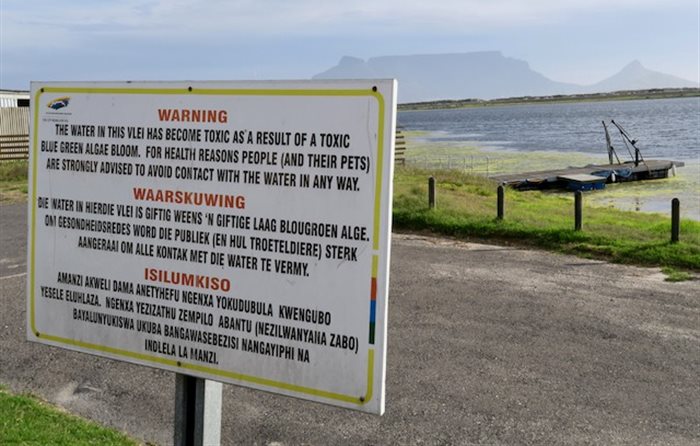
A sign at Rietvlei warning people not to make contact with the water. | Source: Steve Kretzmann
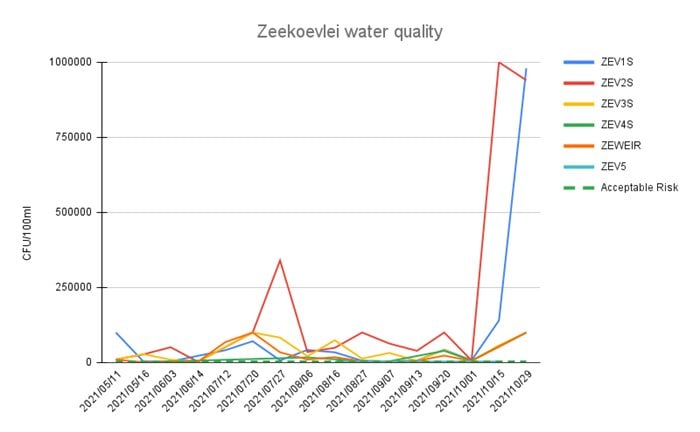
These are measurements of E. coli levels at six locations in Zeekoevlei from May to October 2021. At five of the six testing sites, CFU/100ml was in excess of the acceptable risk level of 4001 CFU/100ml across the majority of days tested. The average reading across all Zeekoevlei sites and all days was approximately 64,000 CFU/100ml, with the highest average reading at testing site ZEV2S, at over 190,000 CFU/100ml.
The results show that all four waterbodies still have E. coli levels far higher than what the City considers acceptable for contact.
E. coli is measured in colony-forming units (cfu) per 100ml. The city considers levels over 4001 cfu/100ml to be an “unacceptable risk” for public health and recreational use.
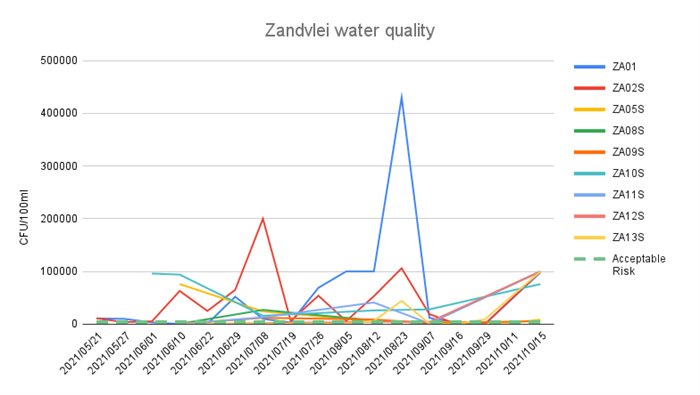
At Zandvlei, the average reading was 32,094 CFU/100ml.
Results from Zeekoevlei, which closed in July this year, taken on 29 October, show at three different sampling points over 100,000 cfu/100ml. Outside the Zeekoevlei Yacht Club it was as high as 980,000 cfu/100ml, and 940,000 cfu/100ml at the inlet of the Big Lotus River.
The City was putting measures in place to rehabilitate the water, but a sewage spill in mid-October caused E. coli levels to rise drastically again. Tom Schwerdtfeger, vice chairperson of the Friends of Zeekoevlei and Rondevlei, said that they had been “almost there”, with the vlei opening again. Now, another worry is that hyacinth, an invasive species, is spreading rapidly as a result of the sewage in the water.
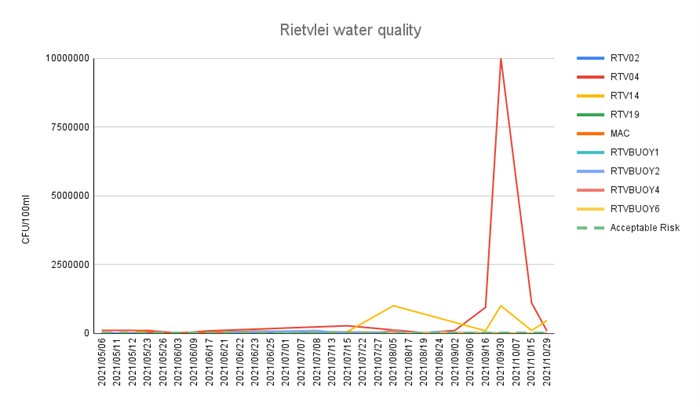
At Rietvlei, the average reading was 198,318 CFU/100ml.
Zandvlei Estuary initially closed in May for four months before it reopened to the public at the beginning of October. The water quality results showed that before the vlei reopened, the E. coli count had been decreasing since August until it became acceptable for public use once again. But the vlei was only open for about two weeks before the City announced it had to be closed again on 22 October.
E. coli count in the water skyrocketed on 15 October. Five sampling points on this date measured over 100,000 cfu/100ml.
The latest results, taken on 29 October, measured 430,000 cfu/100ml at a sampling point opposite the Imperial Yacht Club. On the same day, some lower counts of E. coli were also recorded with 7,800 cfu/100ml at the northern area of the vlei, 5,800 cfu/100ml at a sampling point in the outlet channel, and 3,800 cfu/100ml at rubber weir.
After Zandvlei closed again, the City said in a statement that it is “working around the clock to determine the source of the high levels of E. coli”.
The latest water quality tests done at Rietvlei, which has been closed since late June, measures E. coli counts far above acceptable levels at two sampling points. On 29 October, 460,000 cfu/100ml was measured at a stormwater channel and 82,000 cfu/100ml at another sampling point. However, three other samples on this same day showed levels well below the 4001 cfu/100ml benchmark.
The City also released the water quality test results of Milnerton lagoon and the Diep River from January 2020 to October 2021. The lagoon has had pollution problems for many years due to untreated sewage flowing from informal settlements and failures at the Potsdam Wastewater Treatment Works, according to a City statement.
The water quality results show that sampling points in the lagoon and Diep River have often measured levels of E. coli way above the acceptable limit, however readings have varied dramatically since January last year. The latest measurements on 15 October showed over 1 million cfu/100ml at a sampling point in the Diep River and 69,000 cfu/100ml at the mouth of the Diep River.
The Organisation Undoing Tax Abuse (OUTA) has recently released a
statement calling on the City to make water quality test results of the Diep River estuary and Milnerton lagoon “easily available” for residents, and that these should be published regularly.
The water quality test results can be accessed here:
This article was originally published on GroundUp.









































